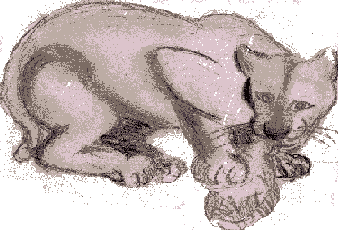
My last volume of poems Playing the Numbers was unlike my earlier poetry; it was autobiographical but not "personal". It was autobiographical in the way that photographs are autobiographical. At the same time as I was writing this book, I was working on a series of paintings based on early family photos. I was forty-nine. That was eleven years ago, and I have not written any poetry since. For me, at least, poetry seemed to demand the personal, and as I moved away from myself towards the photograph, it lost its necessity. And so I exchanged one life for another, for one in which form has primacy and can express the profound selfhood of the artist and yet the artist as a particular self need never be beheld.
Autobiography is not about myself but about the world I found myself in growing up, its culture and mythology. In some ways it's a reprise of Playing the Numbers and the autobiographical paintings of the early 80's, another attempt to replay for myself certain recurring images. It's important that these images are mine, but not because they are my personal story. Many of them are not but rather the stories of my parents and my family. Nevertheless, they form my reality, the substance of my imagination, and are somehow like photographs, both real and unreal. This vaguely eastern, platonic sense of things, of the real in the unreal, this is what seems to have supplanted the urgency of the personal. I remember visiting an elderly aunt whom I had not seen for very many years. The first thing she said to me was "It's like a dream". She took me completely aback, because of the poetry of it and of the moment, because of its truth, because I had already begun to feel it myself, and knew she was talking about a few square miles of The Bronx where most of her family of eight brothers and sisters and her husband's and his cousin my father's brothers and sisters and the almost countless children lived a kind of village life of the working poor.